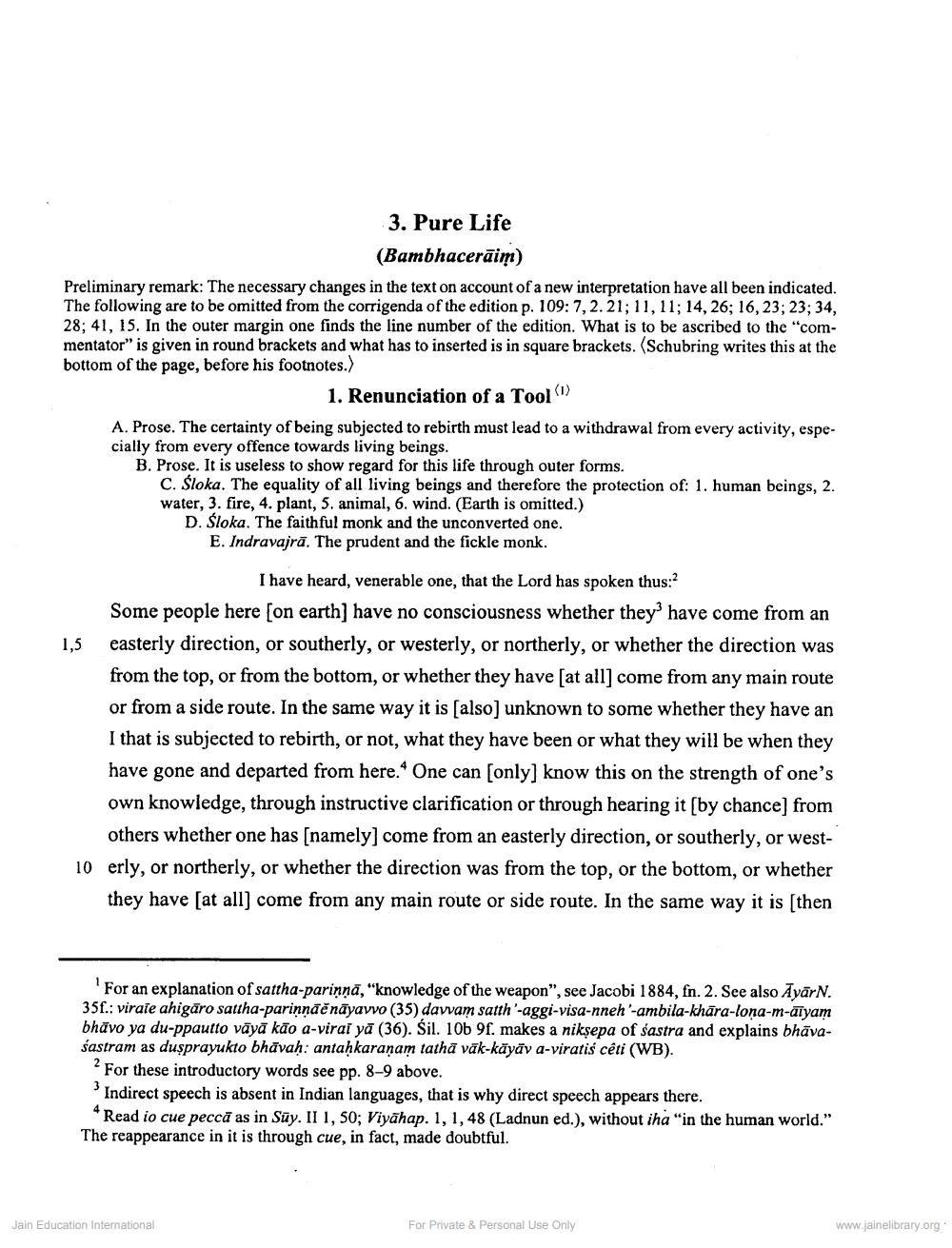________________
3. Pure Life
(Bambhacerāim) Preliminary remark: The necessary changes in the text on account of a new interpretation have all been indicated. The following are to be omitted from the corrigenda of the edition p. 109: 7,2. 21:11.11: 14,26: 16, 23:23: 34. 28; 41, 15. In the outer margin one finds the line number of the edition. What is to be ascribed to the "commentator" is given in round brackets and what has to inserted is in square brackets. (Schubring writes this at the bottom of the page, before his footnotes.)
1. Renunciation of a Tool 1) A. Prose. The certainty of being subjected to rebirth must lead to a withdrawal from every activity, especially from every offence towards living beings. B. Prose. It is useless to show regard for this life through outer forms.
C. Śloka. The equality of all living beings and therefore the protection of: 1. human beings, 2. water, 3. fire, 4. plant, 5. animal, 6. wind. (Earth is omitted.) D. Sloka. The faithful monk and the unconverted one.
E. Indravajrā. The prudent and the fickle monk.
I have heard, venerable one, that the Lord has spoken thus:? Some people here [on earth) have no consciousness whether they have come from an 1,5 easterly direction, or southerly, or westerly, or northerly, or whether the direction was
from the top, or from the bottom, or whether they have [at all] come from any main route or from a side route. In the same way it is (also) unknown to some whether they have an I that is subjected to rebirth, or not, what they have been or what they will be when they have gone and departed from here.* One can [only] know this on the strength of one's own knowledge, through instructive clarification or through hearing it by chance) from
others whether one has (namely] come from an easterly direction, or southerly, or west10 erly, or northerly, or whether the direction was from the top, or the bottom, or whether
they have [at all) come from any main route or side route. In the same way it is (then
For an explanation of sattha-parinnā, "knowledge of the weapon", see Jacobi 1884, fn. 2. See also āyārN. 35f.: viraie ahigāro sauha-parinnāěnāyavvo (35) davam satth'-aggi-visa-nneh-ambila-khāra-lona-m-aryam bhavo ya du-ppautto vāyā kāo a-virai yā (36). Sil. 10b 9. makes a niksepa of sastra and explains bhāvasastram as dusprayukto bhāvah: antahkaranam tathā vāk-käyäv a-viratis cêti (WB). ? For these introductory words see pp. 8-9 above.
Indirect speech is absent in Indian languages, that is why direct speech appears there.
Read io cue peccā as in Süy. II 1, 50; Viyāhap. 1, 1, 48 (Ladnun ed.), without iha "in the human world." The reappearance in it is through cue, in fact, made doubtful.
Jain Education International
For Private & Personal Use Only
www.jainelibrary.org




